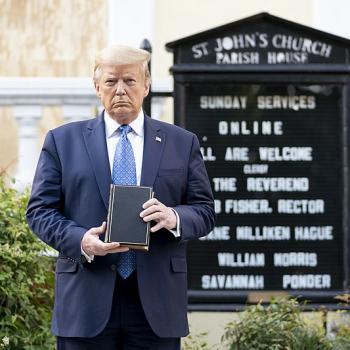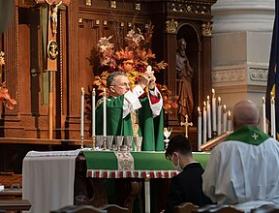Same-sex marriage is a compelling issue for many people on both sides of the question. Public support for traditional marriage eroded rapidly in the past two years, while nationwide support for same-sex marriage is at an all-time high.
For the first time, several states have passed voter referendums allowing same sex marriage, politicians are moving to endorse same-sex marriage and there’s even talk about whether or not conservative Christians and the Republican Party should abandon opposition to it.
Meanwhile, lower courts have struck down the federal Defense of Marriage Act and Proposition 8, both of which were designed to protect traditional marriage.
It is at this juncture that the United States Supreme Court has announced that it will hear challenges to these lower court rulings on DOMA and Proposition 8. Since lower courts had struck down the two laws, the Supreme Court could have allowed those rulings to stand by simply not hearing the challenges. For this reason, many people who favor traditional marriage, including those quoted in the CNA/EWTN article excerpted below, are hopeful about what the eventual Supreme Court ruling might mean. At the same time, supporters of same-sex marriage are voicing concerns that the Supreme Court might overturn lower court rulings and let the laws stand.
I believe it would be a mistake for the Supreme Court to step in at this juncture and federalize marriage. I also think it would be a mistake to define homosexual people as a protected class under the 14th Amendment. I would have this opinion even if I supported same-sex marriage.
It appears to me that the people of this country are in the process of working through a decision on this issue of their own and they are using the ballot box to do it. Even though I do not support same-sex marriage, I know that the voters in the states who legalized it this fall were acting within their rights to do so. I also believe that this is almost always the best way for social change to come about.
My answer to the question of defining homosexual people as a protected class of citizens under the 14th Amendment, is that I do not think this is necessary. Discrimination against homosexuals is rapidly going away without this drastic measure and all its unintended consequences.
One of the most damaging decisions the Supreme Court ever made was in a situation analogous to this one. Roe v Wade came at a time when the various states were liberalizing their abortion laws and public support for legal abortion was on the ascendant. By stepping in and federalizing something that had always been under the control of the states, the Court stopped this normal Democratic process in mid act. What happened instead is that the Court, rather than ending the discussion, radicalized it and set this country on a destructive course of increasingly polarized public debate and politics which continues to this day.
Of course, my opinion about what the Court should do doesn’t mean a thing, just as the opinions of both those who favor same-sex marriage and those who oppose it don’t mean a thing. The question about these two laws is now in the hands of seven people and they can do pretty much whatever they want with it. The Court has the freedom to rule in a narrow fashion that only affects these two statutes, or it can make a whole new Constitutional definition of marriage in whatever fashion four of these seven people want.
We the people have very little to say about what happens at the Supreme Court. And that is why I think that everyone on both sides of this debate should hope that they don’t go off on a law-making binge. I hope that they rule narrowly instead.
The CNA/EWTN article discussing reactions of traditional marriage supporters to the Court’s decision to hear these two cases reads in part:
Washington D.C., Dec 7, 2012 / 04:13 pm (CNA/EWTN News).- Supporters of marriage and family welcomed the Supreme Court’s announcement that it will review both state and federal cases about the definition of marriage in the coming months.
“The U.S. Supreme Court’s decision to hear these cases is a significant moment for our nation,” said Archbishop Salvatore J. Cordileone of San Francisco, who leads the U.S. bishops’ Subcommittee for the Promotion and Defense of Marriage.
“Marriage is the foundation of a just society, as it protects the most vulnerable among us, children,” he said in a Dec. 7 statement. “It is the only institution that unites children with their mothers and fathers together.”
The archbishop said that he is praying that the court will be “guided by truth and justice” in order to affirm the true meaning and purpose of marriage, written in human nature as the union of one man and one woman.
On Dec. 7, the U.S. Supreme Court announced that it will hear two cases regarding the definition of marriage in the next year.
A federal case, Windsor v. United States, involves a challenge to the Defense of Marriage Act, a 1996 law passed with overwhelming bilateral support in Congress and signed by President Bill Clinton. The case challenges a section of the law that defines marriage as the union of one man and one woman for federal policies.
A second case, Hollingsworth v. Perry, concerns Proposition 8, a constitutional amendment adopted by California voters in 2008 to protect the definition of marriage as the union of one man and one woman after the state Supreme Court ruled that gay unions must be recognized as marriages.
Critics of the laws argue that they amount to unjust discrimination against gay couples and an unconstitutional violation of the equal protection clause. Proponents contend that the government has a legitimate interest in recognizing the union of man and woman because it is the fundamental building block of society and plays a critical role in bringing up the next generation.
While lower courts have struck down both laws, marriage advocates say they see hope in a Supreme Court ruling. (Read more here.)












